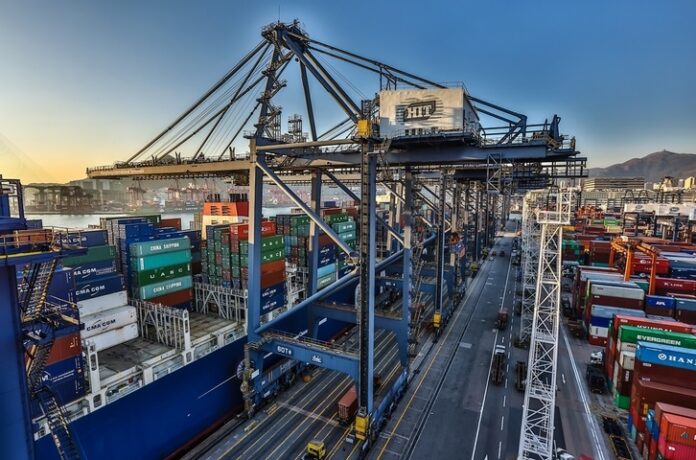- Hong Kong is proactively developing marine insurance and ship leasing, among other related businesses
- Transport Secretary Frank Chan says Hong Kong is still among the busiest container ports in the world and an important hub in Asia Pacific
- Kwai Tsing Container Port handled nearly 18 million TEUs in 2021, over 60% of them transhipment cargo
Hong Kong is proactively developing marine insurance and ship leasing, among other related businesses, to consolidate its position as a high value-added maritime services center and a vital transhipment hub in Asia-Pacific, Secretary for Transport and Housing Frank Chan Fan said.
Chan discussed the blueprint for Hong Kong Port’s development in a written reply to LegCo Member Frankie Yick’s query at the Legislative Council’s “Question Hour” on February 22 about what the government is doing to shore up the port’s position, which slid to No. 6 last year from No. 4 in 2019.
The transport secretary said the Hong Kong Port is among the busiest container ports in the world and an important hub port in the Asia-Pacific region.
He said Kwai Tsing Container Port handled nearly 18 million 20- foot equivalent units in 2021, of which over 60% was transhipment cargo.
In January this year, the Kwai Tsing port had a throughput of 1,049 TEUs, down 16% year on year, while other Hong Kong ports handled 190 TEUs, down 32.5%, for a total of 1,239 TEUs, a drop of 19.4%.
Chan said the port provides frequent and comprehensive liner shipping services linking to nearly 600 destinations abroad, with about 270 container vessel sailings a week.
Hong Kong shipowners and ship management companies together own or manage a sizeable fleet that accounts for 10% of the deadweight tonnage of the world’s merchant fleet, Chan added.
He said nearly 900 maritime-related firms are in Hong Kong, covering marine insurance, maritime legal and arbitration, ship agency and management, ship broking and leasing, creating close to 77 000 jobs and providing quality high value-added maritime services to local, China and overseas shipping companies.
The government completed legislative exercises in the past two years to provide tax concessions to ship leasing and marine insurance businesses.
On ship leasing, LegCo passed the Inland Revenue (Ship Leasing Tax Concessions) Bill 2020 in June 2020 and has taken retrospective effect from April 1, 2020. It provides for tax exemption of income of ship lessors and a half rate tax concession on ship leasing managers with a view to developing Hong Kong into a ship leasing centre in the Asia-Pacific region.
Chan said on marine insurance, LegCo passed in July 2020 the Inland Revenue (Amended Profits Tax Concessions for Insurance-related Businesses) Bill 2019 to reduce the 16.5% profits tax rate of eligible insurance businesses, including marine insurance, by 50%. The tax concessions took effect on March 19, 2021.
To strengthen the collaboration with Greater Bay Area ports, the government will explore establishing communication mechanisms with ports in Guangdong to better leverage the respective complementary strengths in order to promote a healthy and coordinated development among the ports, Chan said.
For four decades, Hong Kong’s port vied with Singapore for the No 1 global ranking but fell out of the world’s top five busiest shipping container terminals for the first time in 2019.
In the 1990s and early 2000s, Hong Kong held on as the world’s top port when China’s economy opened up and used Kwai Tsing port for transhipment of its export products.





